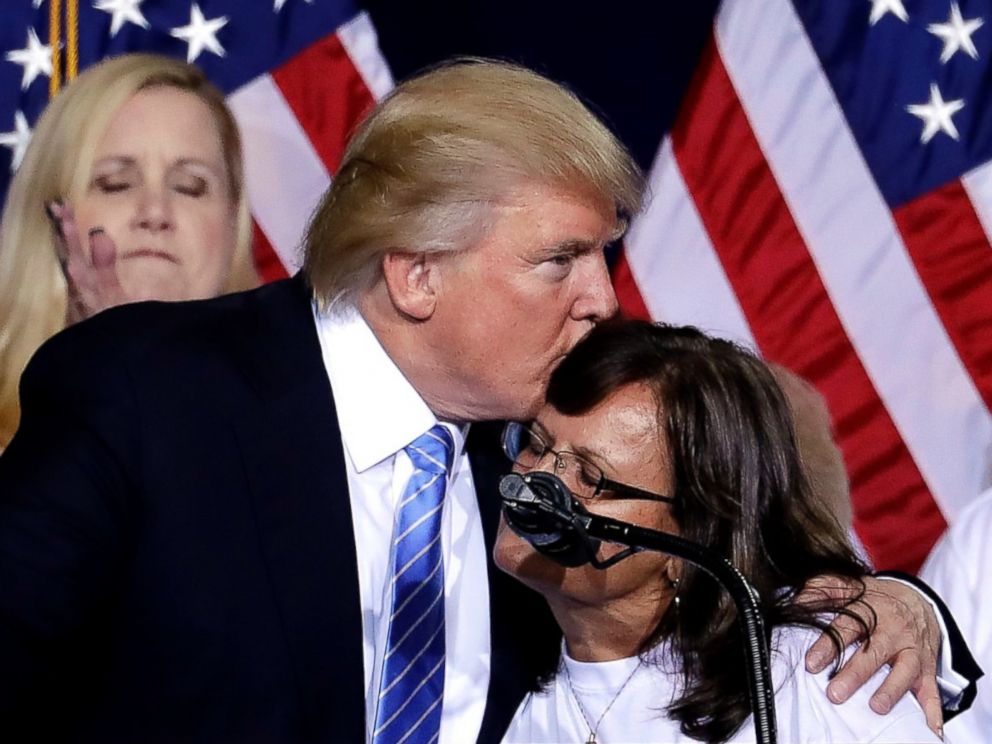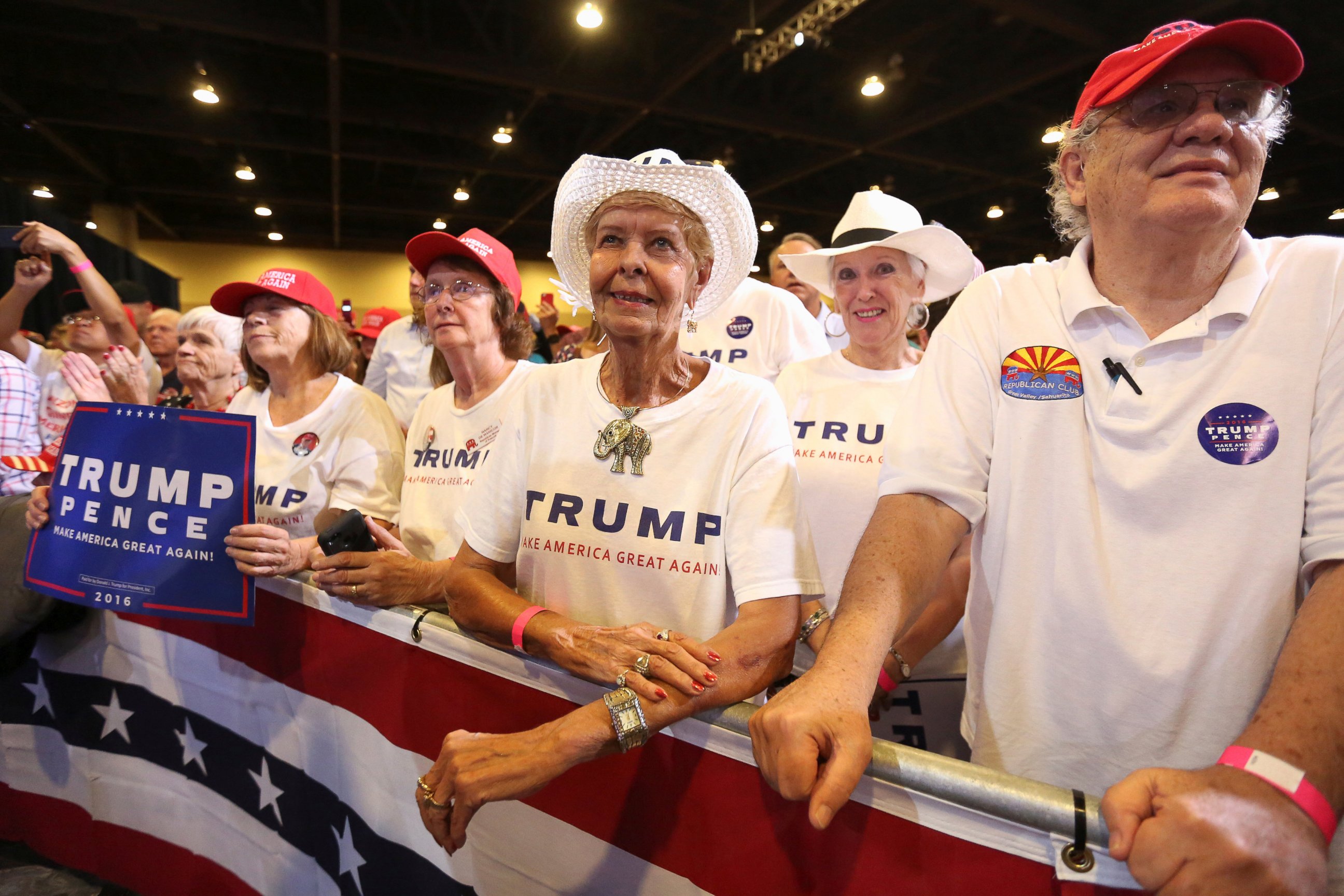After Immigration Speech, Experts Weigh In on Feasibility of Trump's Plans
Experts on some of the plans Trump has for "securing" America.
— -- Donald Trump laid out a lengthy plan covering various facets of his immigration policy in a speech Wednesday night, some points of which he’s said before on the campaign trail.
However, some of the Republican presidential nominee's proposals are viewed as logistically difficult or impossible by experts.
Here is a rundown of the biggest takeaways from Trump's speech.
Building a Wall
The wall Trump plans to build along the southern border of the United States has been a centerpiece of his campaign. He regularly talks about building a “big, beautiful wall” and having Mexico pay for it. That became a point of contention when he visited Mexico shortly before last night's speech and both he and the Mexican president gave differing accounts of what was discussed.
In the speech in Arizona, however, Trump made his feelings clear.
“Mexico will pay for the wall. Believe me, 100 percent. They don't know it yet, but they're going to pay for the wall,” he said.
“On Day 1, we will begin working on an impenetrable, physical, tall, powerful, beautiful southern border wall. We will use the best technology, including above and below ground sensors, that's the tunnels.”
Ending 'Catch and Release'
A major focus of Trump's immigration policy is removing people who arrived in the U.S. illegally.
Trump likened the current policy to the fishing term, and said that his policy would remove undocumented immigrants even further from the U.S.
“We're not dropping them right across [the border]…. We will take them great distances, but we will take them to the country where they came from,” Trump said.
“Under my administration, anyone who illegally crosses the border will be detained until they are removed out of our country and back to the country from which they came.”

Zero Tolerance for 'Criminal Aliens'
People who entered the country illegally and then committed crimes have been the subject of Trump’s ire for much of his campaign. He has indicated that they are the first people that he wants to remove.
“They're going out, they’re going out fast, moving forward. We will issue detainers for illegal immigrants who are arrested for any crime whatsoever and they will be placed into immediate removal proceedings if we even have to do that,” he said Wednesday.
Kari Hong, an assistant professor at Boston College Law School who founded a clinic that represents “non-citizens with criminal convictions,” told ABC News that such a policy has been in place for years.
“He does not know or he does not care about the details of immigration law. He focused on rhetoric and he doesn’t have any new ideas and he's focused on proposals that have failed,” she said of his speech.
Hong said that non-citizens with criminal convictions are currently ordered out of the country under existing laws.
“That is our current system…. It is falling apart because that problem sweeps in so many minor and ridiculous crimes,” she said.
Deportation Task Force
Another area where he appeared to detail a program that is already in existence in some form was his proposed “special deportation task force.”
Trump said that the force would be created within the U.S. Immigration and Customs Enforcement and would be “focused on identifying and quickly removing the dangerous criminal illegal immigrants in America who have evaded justice.”
But John Cohen, a former Department of Homeland Security acting undersecretary who is now an ABC News consultant, said such a force “already exists.”
Trump said that he wants to hire 5,000 more border patrol agents and triple the number of ICE deportation officers, which Cohen also takes issue with.
“You could make a decision to hire additional people [for ICE but] that’s going to take a very, very long time. The only other way you could immediately apply more resources towards deportations is to take ICE agents who are currently working on joint terrorism task forces and cybercrime and other high-priority investigations and move them to detention and removal positions,” Cohen told ABC News.
“As a matter of enforcement operations, his stated goals are completely unrealistic and unachievable unless under his presidency he is going to draw resources from other vital areas,” he said.
Ending Visa Overstays
Similarly, Trump said that another “top priority” would be removing people who entered the country on a legal visa but overstayed the set date.
Trump said that “people around the world believe they can just come on a temporary visa and never, ever leave.”
Cohen led the Department of Homeland Security’s effort to end visa overstays and noted that such violations are actually civil and not criminal issues.
“As a matter of policy, because resources are finite, a priority has been placed on identifying, locating, arresting and removing, those undocumented immigrants who are involved in illegal activity,” Cohen said, arguing that it was a better use of agents’ time than to “devote them solely to the issue of locating and removing undocumented aliens, a large number of which have been in this country for years, have jobs, are paying taxes and their kids may be citizens.”
Ending Visas From Certain Countries
For the first time, Trump specifically named two of the countries that would be on the list -- Syria and Libya -- though he reiterated that the full list would be determined by the State Department, Homeland Security and the Justice Department.
He did not address the diplomatic and international implications of such a move, which Cohen warned could be broad.
“The granting of visas ... is intertwined in the broader relationships that we have with other countries. We need to be prepared that if we restrict our willingness to restrict visas to other countries that they may do the same to us and that would have significant impact on our international trade and security relationships,” Cohen said.

Screening Tests for Applicants
Trump has previously mentioned the so-called ideological tests that he talked about in his Wednesday night speech but gave new details about the subjects of said tests.
“Applicants will be asked for their views about honor killings, about respect for women and gays and minorities, attitudes on radical Islam, which our president refuses to say, and many other topics as part of this vetting procedure. And if we have the right people doing it, believe me, very, very few will slip through the cracks. Hopefully none,” he said.
This was one area that Cohen admitted could be improved, though Trump isn’t the first one to spot a crack in the system, so it is something that has been under review for some time, according to Cohen.
“Our vetting of people coming to the United States can be improved, and it has been a priority for the Department of Homeland Security, the FBI and the intelligence community to improve the information systems needed to do that vetting and to expand the types of information needed,” Cohen said.
Block Funding for Sanctuary Cities
Trump has regularly blasted the existence of sanctuary cities, the name given to cities where they do not prosecute people solely for having arrived in the country illegally.
Trump called for their end because they “have resulted in so many needless deaths” and said that such cities “will not receive taxpayer dollars.”




